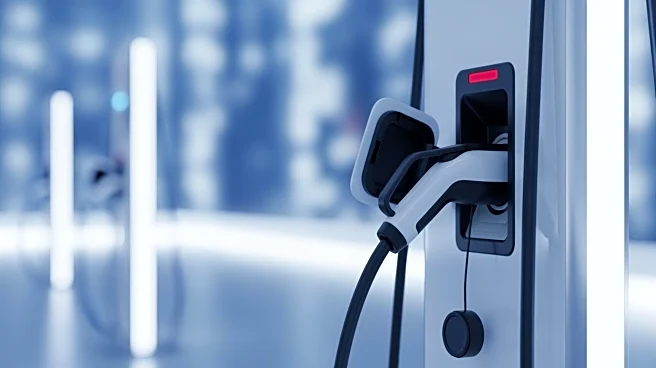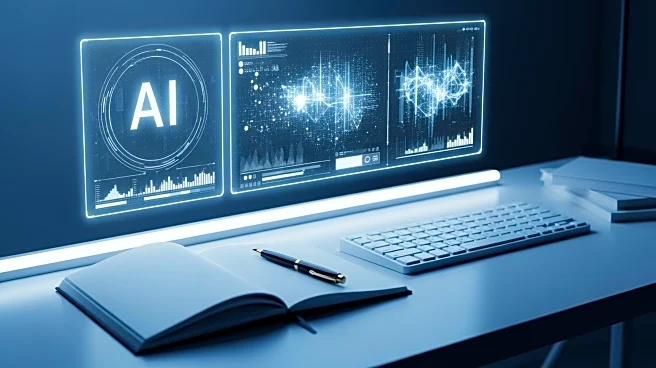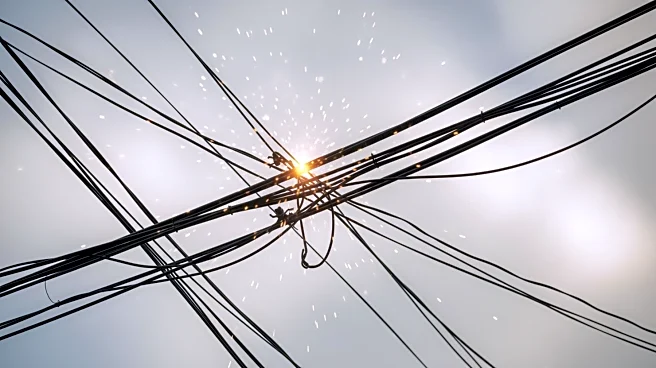What's Happening?
Hyundai has experienced a substantial drop in electric vehicle (EV) sales following the expiration of federal tax credits in October 2025. The South Korean automaker reported a 63% decrease in sales of its IONIQ
5 model compared to the previous year, with only 1,642 units sold last month. This decline is part of a broader trend affecting other automakers like Ford, Kia, and Honda, which also saw reduced EV sales. Despite the downturn in fully electric vehicle sales, Hyundai's overall 'electrified' vehicle sales, which include hybrids, increased by 8% in October. Hyundai's CEO, Randy Parker, noted that the demand for EVs was strong leading up to the expiration of the tax credits, but the market has since been disrupted. Hyundai remains optimistic about its sales trajectory, expecting to achieve record retail and total sales in 2025.
Why It's Important?
The decline in Hyundai's EV sales highlights the significant impact of federal tax incentives on consumer purchasing behavior in the electric vehicle market. The expiration of these credits has led to a sharp decrease in sales, underscoring the role of government policy in promoting the adoption of cleaner energy vehicles. This situation could influence future policy decisions regarding incentives for sustainable technologies. Automakers like Hyundai, which have invested heavily in EV development, may face challenges in maintaining sales momentum without such incentives. The broader implications for the U.S. automotive industry include potential shifts in production strategies and pricing models to adapt to changing market conditions.
What's Next?
Hyundai is taking steps to mitigate the impact of the tax credit expiration by offering significant price reductions on its 2026 IONIQ 5 model, with some trims seeing cuts of nearly $10,000. The company is also continuing to offer a $7,500 credit for the 2025 IONIQ 5. These measures aim to sustain consumer interest and sales in the absence of federal incentives. The company anticipates that the EV market will stabilize and reset following these policy changes. Other automakers may also adjust their strategies, potentially leading to increased competition and innovation in the EV sector.










